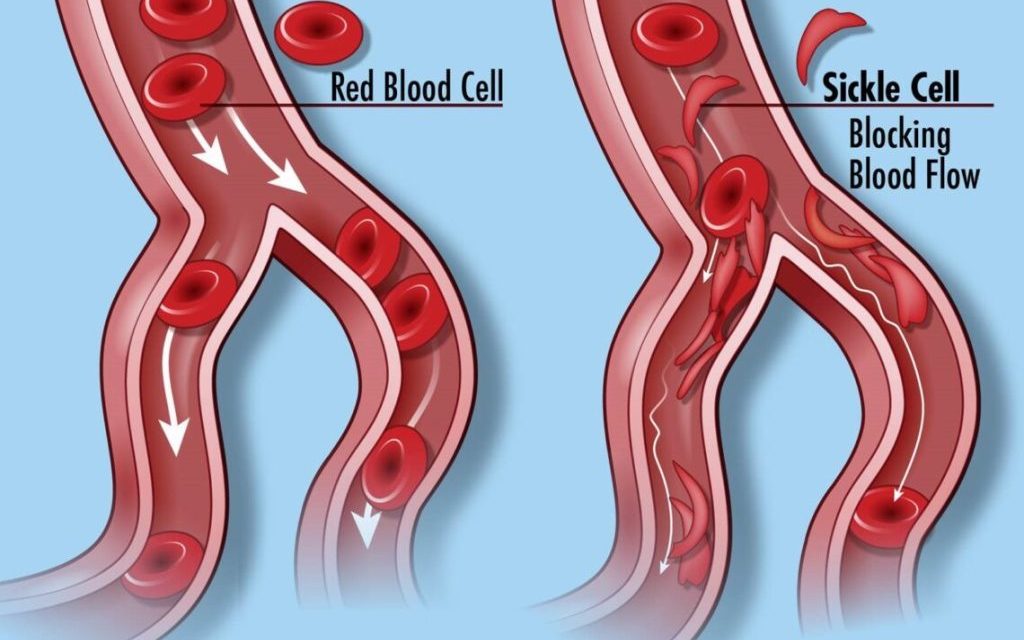
By Aria Brent
AFRO Staff Writer
abrent@afro.com
People are often encouraged to “know their status,” however this healthy habit can be applied to more than just safe-sex practices. Although they are not the only community who suffers with sickle cell disease (SCD), African Americans are affected at a disproportionately higher rate than their White, Asian or Latino counterparts.
SCD is a series of inherited disorders that affect hemoglobin, the major protein that carries oxygen in red blood cells. Usually, red blood cells are disc-shaped and flexible making it easy for them to move through the blood vessels.However, with SCD red blood cells are crescent or “sickle” shaped due to a genetic mutation that affects the hemoglobin molecule.
According to the Center for Disease Control “sickle cell disease affects about 100,000 people in the United States; more than 90 percent are Black or African American, and an estimated 3 percent – 9 percent are Hispanic or Latino.”
With such a high risk of being impacted by the genetic disease, it’s important that members of the Black community know their own and their partners status regarding the chances of being a carrier of the SCD trait. Barbara Harrison, director of community outreach at the Howard University Center for Sickle Cell Disease spoke about what genetic counseling is and the importance of it and knowing your status.
“Genetic counseling is the process of helping families or individuals understand the genetics of a condition. And the impact of that is there can be genetic testing that’s available for a particular condition,” she said. “It may be doing genetic testing to find out the risk for a condition to occur. It may be to try to identify what a particular condition is that’s affecting a person.”
For SCD, genetic counselors help at-risk couples understand their risk factors and the implications of passing on the sickle cell gene. They also offer guidance on family planning options and education on managing the disease if a child is born with it.Harrison continued and shared the services the medical center offers.
“We offer genetic counseling which can lead to genetic testing that’s available for a variety of things. There’s also gene therapy, which is pretty advanced and can be as serious as someone going for a bone or neurotransplant,” said Harrison. “We do not offer that here at Howard, but we talk to patients who might benefit from it and then we point them in the right direction if it’s something that they want to pursue.”
The lack of widespread awareness about genetic counseling options can lead to a higher prevalence of SCD in the Black community. Many people–even those aware of the disease, are not aware of their own carrier status, or they lack the resources to access genetic counseling.
“One thing about sickle cell trait or being a carrier for sickle cell is that it often comes with no symptoms. Being a carrier is something that a person can have and then pass down to the next generation,” she explained “And it’s really not until a person who has sickle cell trait meets another person with sickle cell trait, and then there’s that one in four chance they could have a child with sickle cell disease that maybe people know about it in their family.”
Harrison noted that finding out you have the sickle cell trait, once it appears in your child is too late. Parents are encouraged to know their status before they procreate. Veteran genetic counselors urge people to prioritize knowledge of their status just as they do an annual flu-shot.
“I think it’s always about awareness. Awareness and understanding can address a lot of those issues. It’s all about providing that education, getting our social network groups to prioritize it just like we talk about diabetes and cancer,” Harrison said. “We should be talking about sickle cell disease. We have to use avenues available to get medical information out about other things–there’s no reason we can’t do that for sickle cell as well.”
The post Addressing sickle cell disease: The importance of genetic counseling appeared first on AFRO American Newspapers.











